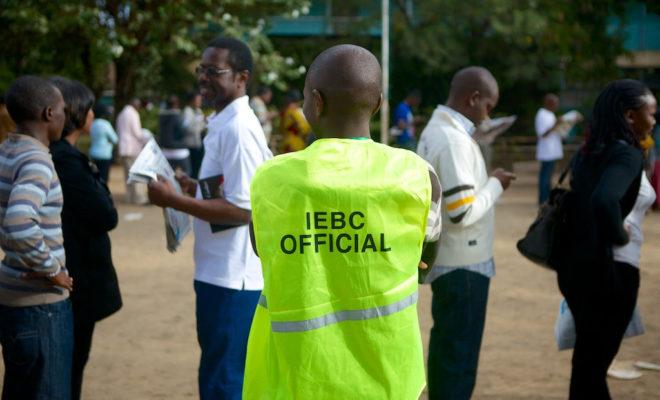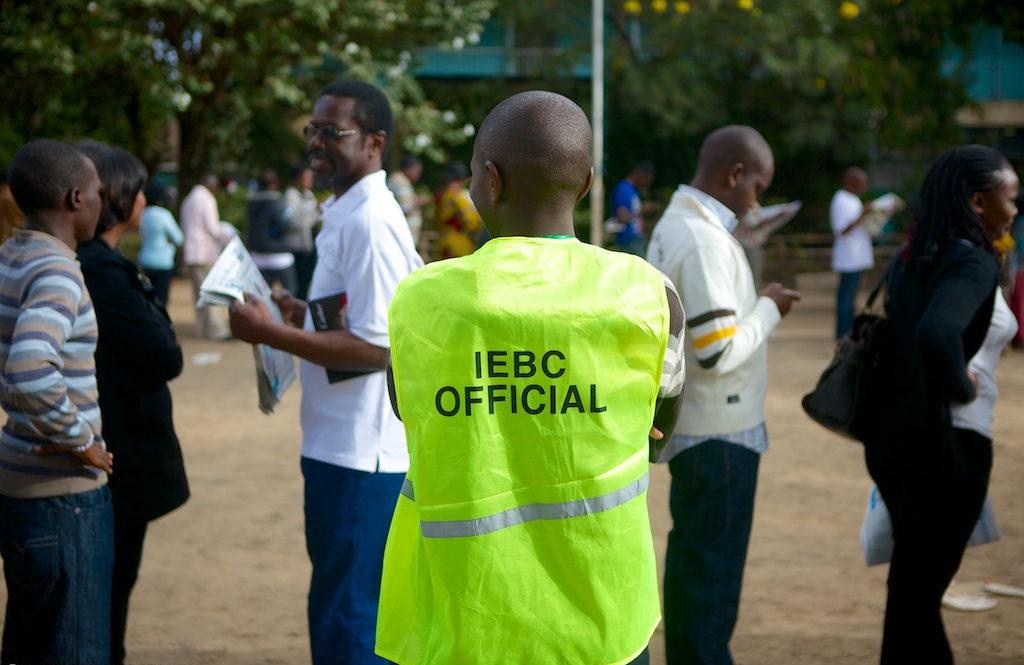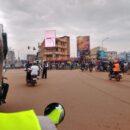How Kenya’s votes will be counted, and why transparency is so crucial

Errors are commonplace in vote counts. What matters is how politicians and election officials respond.

With tensions high in Kenya, a transparent vote count will be key to avoiding disputes.
The shocking murder of Christopher Msando, which came to light this week, casts a pall over Kenya’s 8 August elections.
As the acting director of information and communications technology at the Independent Elections and Boundaries Commission (IEBC), Msando had a key role in two critical aspects of the electoral process: the biometric identification of voters at polling stations; and the results management system, which aggregates votes once they’ve been counted at the polling station level.
Both of these procedures are managed through the IEBC’s Kenya Integrated Elections Management System (KIEMS). Technical experts have expressed their confidence in the KIEMS, and the IEBC partially tested the system on 2 August.
While a full system test ahead of election day remains necessary, as recommended by international election observers, Msando’s death has raised broader questions about the integrity of the technical processes that underpin the election. Since a full murder investigation will not be complete before polling day, rumours will inevitably continue to circulate about the motives of the perpetrators.
There is little the IEBC can do to stop this speculation. However, in order to reassure the Kenyan electorate and political competitors, the IEBC could take further steps to demonstrate transparency.
It could release the results of the KIEMS test; it can ensure that it fully publicises and explains its decisions in the coming days; and it could share with political parties the IEBC’s contingency plans in the event the KIEMS is not fully operational on 8 August.
How the count should work
According to current plans, votes are to be counted at each of the 40,883 polling stations after voting has closed. The results will then be transmitted to constituency tallying centres in each of Kenya’s 290 constituencies via the KIEMS.
Due to a court ruling, the IEBC in Nairobi cannot modify the results from either the polling stations or constituency tallying centres. This means that a simple tabulation of the 290 constituency results will produce the national results.
Representatives from political parties stationed at polling stations and constituency tallying centres will know the results before they are transmitted to Nairobi. If they are vigilant and professional, these agents can make valuable contributions to the integrity of the count and tabulation process.
IEBC has requested that party representatives check and agree that the results entered in the KIEMS match those on the written results form, though this is not required by law or regulation.
Mistakes are normal
Past experience, from Kenya and elsewhere on the continent, shows that voting itself is likely to run smoothly, but that counting and tallying may be more problematic.
By the end of election day, polling staff, party agents and election observers are fatigued and feeling the pressure. Simple errors of arithmetic may leave a ballot unaccounted for, requiring a second (or third) count. Some political party representatives may be overly boisterous during the count. Results forms may arrive at the constituency tallying centres in varied states of completion.
[International election observation is decades out of date. I should know.]
All of these events are normal and to be expected. What matters is how those competing in the election, as well as their teams and advisors, respond in such circumstances. Amidst heightened tensions, it is often tempting to see electoral malfeasance where there is only unintentional error.
This is not to say that the IEBC will be beyond reproach or that serious mistakes will not occur. But for all the pre-election day drama, the real test in any maturing democracy is for leadership and integrity to be demonstrated – by both election officials and politicians – not only before the polls close but after. Kenyans expect no less.
For more on Kenya’s elections, see:
- Kenya’s 2017 elections will be like none before. Here’s why.
- Kenyatta vs. Odinga: A study in contrasts
- How the young and restless could change Kenya’s political future
- Kenya: On the hopes and limits of Boniface Mwangi’s revolution
- Deaths, defections and deceit: How Kenya’s fake news spreads
- Why so tense? Kenya’s high stake elections explained






comrades where elections are transparent there is great comfort in results being people will is duly set forth. Only thing more comforting is your nominee winning having a pledge of to diligently pursue upgrading living conditions to where there exist a minimum Live Well under modern criteria for those willing to work. like condition is before Kenya plus all of Buntu Africa under a modern Buntu agenda which is considered by Buntu above all agendas from foreign cultures or religions. Very much sincere, Henry Price Jr. aka Obediah Buntu IL-Khan aka Kankan. [email protected]